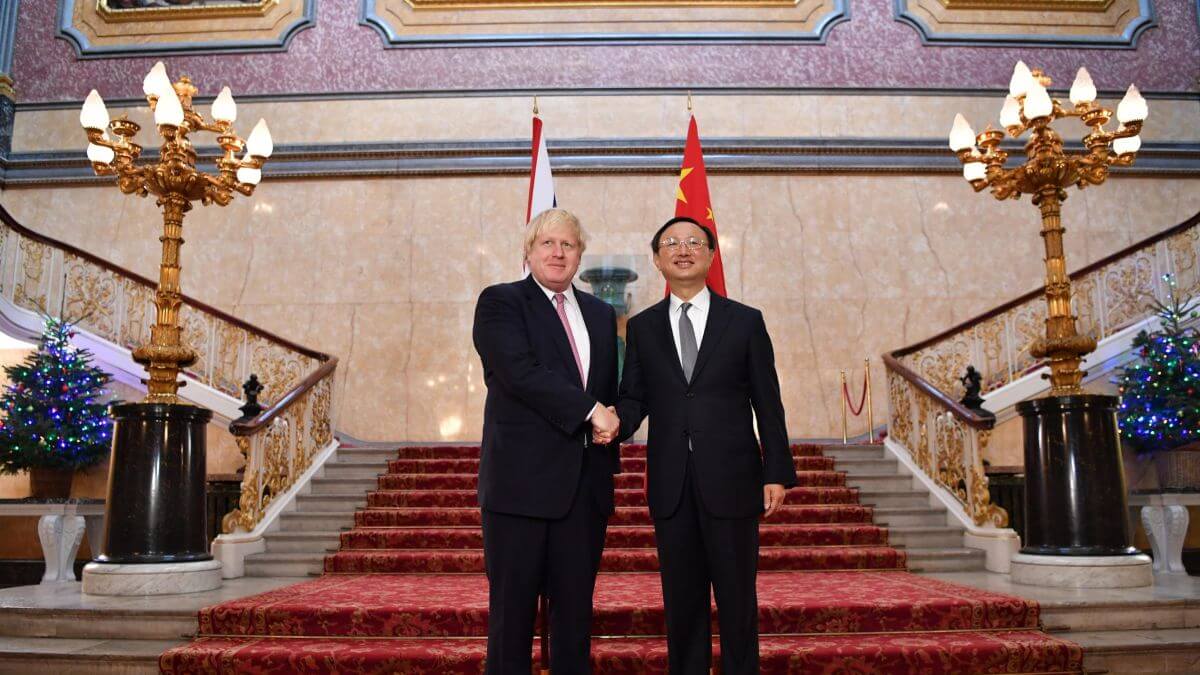The United Kingdom (UK) will not “pitchfork away” Chinese investment, Prime Minister (PM) Boris Johnson said in an interview with Bloomberg that was published late on Monday.
“I’m not going to tell you the UK government is going to pitchfork away every overture from China...China is a gigantic part of our economic life and will be for a long time—for our lifetime,” Johnson said.
Johnson’s comments come ahead of the COP26 United Nations climate summit, which the UK will host next month. During the event, the country is set to unveil foreign investment totalling £9.7 billion ($13.3 billion), which will be dedicated to supporting green economic growth.
Prior to this global summit, during which the UK is expected to engage with a whole host of international actors, the PM made it clear that the UK would continue to remain “cautious” regarding China’s access to Britain’s critical national infrastructure (CNI) like nuclear power stations and superfast 5G networks.
“But that does not mean that we should be naive in the way we look at our critical national infrastructure— you mention nuclear power, you mention 5G technology— those are all legitimate concerns for any government,” he noted.
“We should be cautious about how we handle our CNI and about how we handle FDI (foreign direct investment) from China .... that is why we have brought in some of the legislation that we have,” Johnson reasoned.
Johnson’s comments come against the backdrop of tense UK-China relations, which have most recently frayed over the AUKUS deal. The new partnership between the United States, UK, and Australia is largely viewed as a counter against China’s rising aggression in the Indo-Pacific.
Moreover, UK has also voiced its concerns regarding China’s human rights abuses in Hong Kong, Xinjiang, and Tibet. In March, the UK levied asset freezes and travel bans against four Chinese government officials, as well as a Xinjiang security body, under its Global Human Rights sanctions regime “for systemic violations against Uyghurs and other minorities.”
Following this, in April, Foreign Secretary Dominic Raab announced cuts in its aid to China by 95% while presenting the department’s Overseas Development Assistance allocations for the 2021-2022 period.
He attributed the change to a “strategic shift” that realigns the British budget with its diplomatic goals and said that the meagre amount of £900,000 ($1.2 million) allotted to China will solely focus on initiatives aimed to promote “open societies and human rights.”
However, despite the bumps in their relationship, Johnson insisted trade links between the two will continue to grow.
“I am no Sino-phobe, very far from it. China is a great country, a great civilisation...In spite of all the difficulties, in spite of all the difficult conversations about the Dalai Lama or Hong Kong or the Uyghurs—where we will continue to stick to our views—trade with China has continued to expand for a very long time,” he declared.
Boris Johnson Says UK Not Naive Enough to “Pitchfork Away” Chinese Investment
Despite bumps in the relationship, Johnson insisted trade links between the UK and China will continue to grow.
October 20, 2021

British PM Boris Johnson with former Chinese State Councillor, Yang Jiechi. SOURCE: CNN
